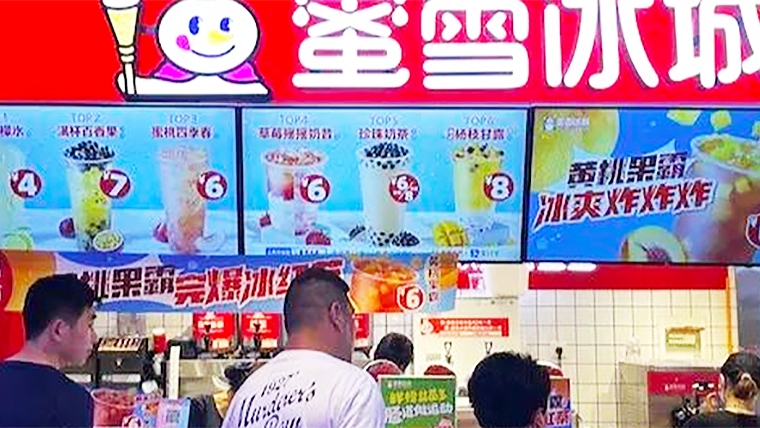
By Mark Tanner*
Ten years ago, on every trip to Hong Kong, we’d bring back some basic treats to Mainland China such as wine or cheese. There were so many more products to choose from, they were markedly cheaper, and they had the perception of being safer. It wasn’t just us. Daytrippers from Mainland China were buying so many everyday items that locals became increasingly less tolerant of empty shelves and long queues, forcing China to restrict visas for mainland visitors to Hong Kong.
Travel between Mainland China and Hong Kong has finally become much less restricted again, and the mainlanders are back ferrying plenty of food and drink over the border. Interestingly, much of the trade has been from the mainland into Hong Kong. Trending snacks and bubble tea, to name a few, are now so popular that the term ‘Reverse Daigou’ has become a buzzword on social media. The reverse of trade is symbolic of how Mainland China’s food categories have evolved into being perceived as safer, more innovative, and interesting than the pre-Covid days.
Chinese consumers’ perception of safety of Chinese goods has changed with improved quality control and marketing. This is particularly evident among the many domestic brands who have tapped into the trading-up trend. It has taken some years of convincing consumers that their supply chains were safe, but it seems to be working. Popular safety reassurance campaigns with QR Codes beaming consumers directly to farms and factories with white coats and safety pledges, have become secondary to other messaging from local brands as consumers feel more confident in the safety of local goods.
But you can never get too comfortable in China. There have been another couple of scandals revealed over the past week, ranging from factories in China adding chemicals to local rice and packaging it up as jasmine rice from Thailand, to a massive bubble tea chain using expired and inadequate ingredients in their beverages.
The majority of consumers China Skinny talks to still cite the safety of imported food and beverages as an advantage over the local stuff. It remains a strong selling point, but it is no longer the be-all-and-end-all driver influencing purchases. Consumers are seeking more.
Many foreign brands continue to have strong points of difference, some they aren’t even aware of. But a lot of brands are still focusing on the safety angle, and missing the opportunity to promote their other relevant features and benefits, and the emotional side of their brand as a whole. There are other almost-mandatory factors which will make their goods appealing in the China market.
One example is tending to consumers’ focus on convenience. This is applicable across the whole end-to-end experience of consumption, which can be enhanced by format, packaging, the channel to research or buy, or how they can clean it up/dispose of it afterwards. These are strong considerations for any purchases these days – whether domestic or foreign.
Proactive health has long been a focus with Chinese consumers, both from a food safety standpoint, as well as clean labels and healthier inputs. However, largely as a result of Covid, Chinese have much more awareness about mental health as a factor in buying food. Whether ingredients and formats that are perceived to help mental and emotional wellbeing, to indulgent food that has less guilt attached. This has led to a rising tolerance or even appreciation for science and food technology which can assist.
Chinese consumers’ needs and wants have always been a fast-moving target, but that target has shifted even more dramatically since the pandemic, and brands would benefit in tracking this to stay relevant.
*Mark Tanner is the CEO of China Skinny, a marketing consultancy in Shanghai. This article was first published here, and is re-posted with permission.

We welcome your comments below. If you are not already registered, please register to comment
Remember we welcome robust, respectful and insightful debate. We don't welcome abusive or defamatory comments and will de-register those repeatedly making such comments. Our current comment policy is here.